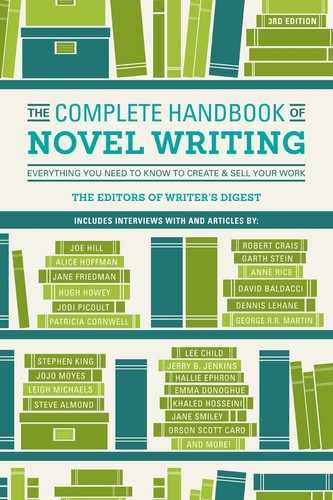Best-Selling Advice: Purpose
“The writing of a novel is taking life as it already exists, not to report it but to make an object, toward the end that the finished work might contain this life inside it and offer it to the reader. The essence will not be, of course, the same thing as the raw material; it is not even of the same family of things. The novel is something that never was before and will not be again.”
—Eudora Welty
“When I sit down to write a book, I do not say to myself, ‘I am going to produce a work of art.’ I write it because there is some lie that I want to expose, some fact to which I want to draw attention, and my initial concern is to get a hearing.”
—George Orwell
“[The writer] has to be the kind of man who turns the world upside down and says, lookit, it looks different, doesn’t it?”
—Morris West
“Indeed, great fiction shows us not how to conduct our behavior but how to feel. Eventually, it may show us how to face our feelings and face our actions and to have new inklings about what they mean. A good novel of any year can initiate us into our own new experience.”
—Eudora Welty
“I write in a very confessional way, because to me it’s so exciting and fun. There’s nothing funnier on earth than our humanness and our monkeyness. There’s nothing more touching, and it’s what I love to come upon when I’m reading; someone who’s gotten really down and dirty, and they’re taking the dross of life and doing alchemy, turning it into magic, tenderness, and compassion and hilarity. So I tell my students that if they really love something, pay attention to it. Try to write something that they would love to come upon.”
—Anne Lamott
“The only obligation any artist can have is to himself. His work means nothing, otherwise. It has no meaning.”
—Truman Capote
“I’ve always had complete confidence in myself. When I was nothing, I had complete confidence. There were ten guys in my writing class at Williams College who could write better than I. They didn’t have what I have, which is guts. I was dedicated to writing, and nothing could stop me.”
—John Toland
“You need that pride in yourself, as well as a sense, when you are sitting on page 297 of a book, that the book is going to be read, that somebody is going to care. You can’t ever be sure about that, but you need the sense that it’s important, that it’s not typing; it’s writing.”
—Roger Kahn
“The real writer learns nothing from life. He is more like an oyster or a sponge.”
—Gore Vidal
“I think most writers—and I’m excluding now the adventure and mystery writers—will write about episodes meaningful to them in terms of their own imaginations. Now that would include a great deal of what they experience, but I’m not sure there’s an autobiographical intention so much as the use of experience. That’s been true in my case: I believe I’m telling the truth when I say that, when I wrote Catch-22, I was not particularly interested in war; I was mainly interested in writing a novel, and that was a subject for it. That’s been true of all my books. Now what goes into these books does reflect a great deal of my more morbid nature—the fear of dying, a great deal of social awareness and social protest, which is part of my personality. None of that is the objective of writing. Take five writers who have experienced the same thing, and they will be completely different as people, and they’d be completely different in what they do write, what they’re able to write.”
—Joseph Heller
“They have to be given some meaning, the facts. What do they mean? The meaning’s going to be influenced by a lot of things in you and your own culture. And some of these things you may be unaware of. But every historian has some kind of philosophy of life and society. … All kinds of strands and currents and factors are involved. You have to separate and put together and from that we should deduce that there’s no situation in the present that’s simple, either. No simple answers. And the historian, when he looks over one of these situations, is going to try and consider all these things and try to be objective and fair and balanced, but what he picks out as the meaning will, of course, be what he himself believes.”
—T. Harry Williams
